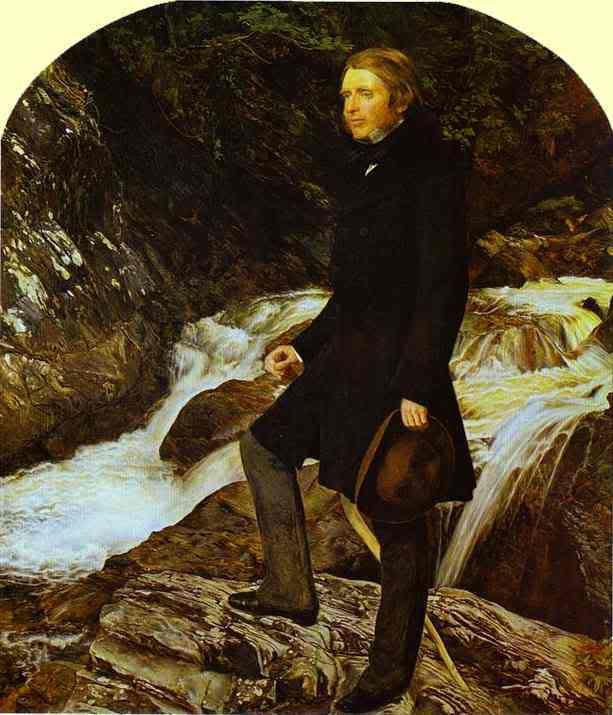"When public taste seems plunging deeper into degradation day by day, and when the press universally exerts such power as it possesses to direct the feeling of the nation more completely to all that is theatrical, affected, and false in art...it becomes the imperative duty of all who have any perception of knowledge of what is really great in art, and any desire for its advancement in England, to come fearlessly forward, regardless of such individual interests as are likely to be injured by the the knowledge of what is good and right, to declare and demonstrate, wherever they exist, the essence and the authority of the Beautiful and the True." (John Ruskin, Modern Painters I., 3.4). 
John Ruskin made this statement in May 1843, when he was just 24 years old. By the time of his death in January, 1900, his call for a return to "the Beautiful and the True" had come to represent one of the formative statements of the Victorian age.
Now here's a ribald tidbit: The Painting of Ruskin is by John Everett Millais, who had an affair with Ruskin's wife Effie shortly after completing this portrait. Effie later had her marriage annuled on the grounds that John Ruskin was "incapable of conusmmating" their marriage "by reason of incurable impotency." Effie and Millais were married one year later. Oddly enough, in keeping with the Pre-Raphaelite tradition of Rossetti and Morris, Millais and Ruskin remained friends!
Friday, March 21, 2008
The Beautiful and the True
Posted by
Margaret
at
11:14 AM
![]()
![]()
Labels: philosophy, pre-raphaelites
Subscribe to:
Post Comments (Atom)


3 comments:
Such a tangled web the PRB weaved! Lovely portrait of Ruskin though, there is a tender, friendliness in its rendering. Happy Easter! ((HUGS))
In our man Millais's defense, he was not having an affair with Ruskin's wife when he painted the portrait. But they were falling in love. And Ruskin was a poor husband who, ultimately, was little chagrined to see her go.
Good quote.
Jason Rosenfeld
---------------------------------------
See Millais at the Van Gogh Museum, Amsterdam!
http://www3.vangoghmuseum.nl/vgm/index.jsp?page=127004&lang=en
Thank you for the correction, Jason! And yes, history definitely suggests that Ruskin was a rather poor husband, though I think accusations of "incurable impotency" could ruffle anyone's feathers, no matter how true they might have been.
Post a Comment